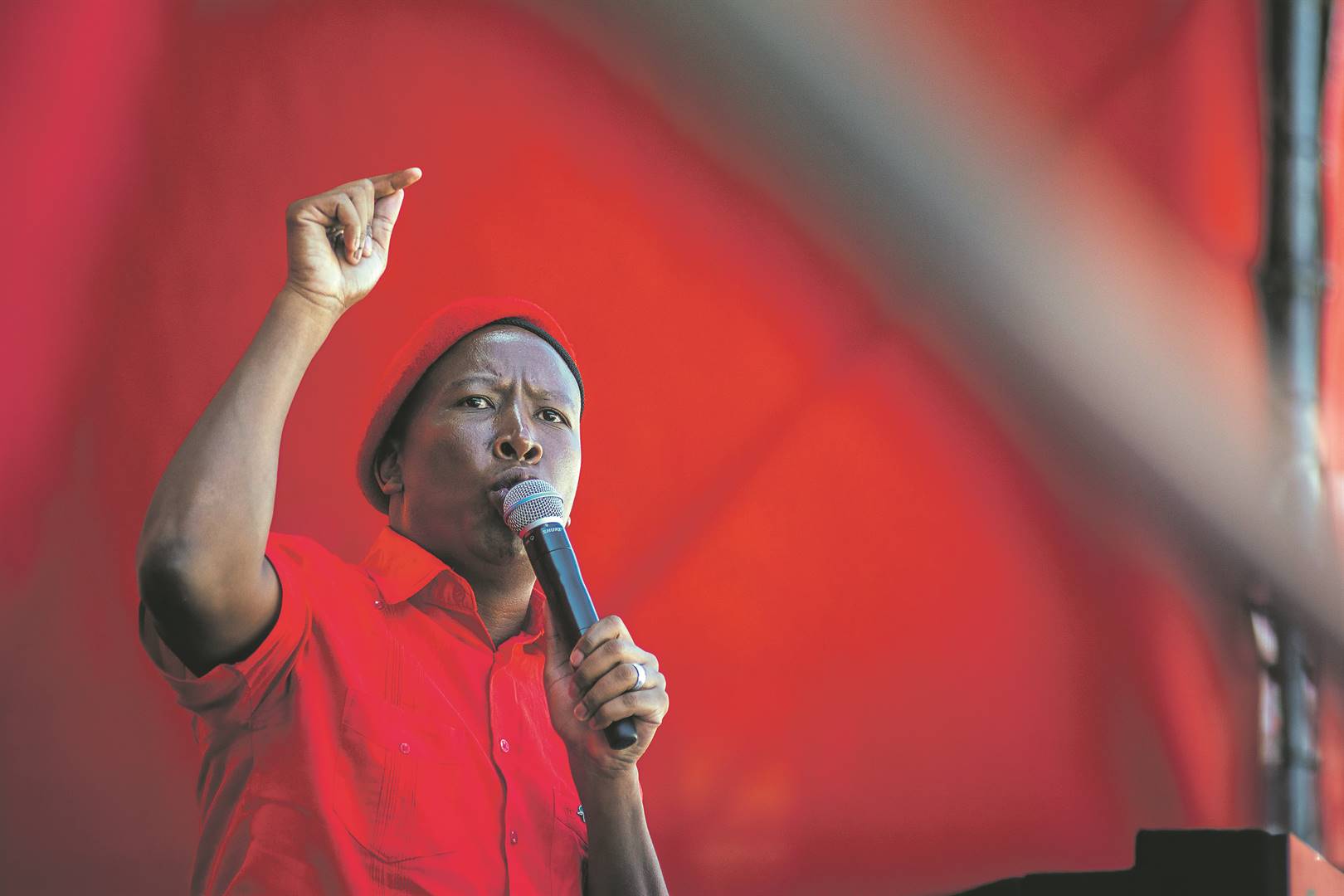The
EFF and its leadership, including and particularly Julius Malema, are difficult
to deal and engage with.
They're violent, anarchic and populist.
They more often than not resort to insults and invective when challenged, use racist language when attacking those who criticise them and use inflammatory language in their rhetoric. Their vocabulary is peppered with quasi-military language and faux revolutionary terms, words and phrases.
The party's structure is modelled on an autocratic and despotic system of command and control. Malema is styled as a "commander-in-chief" (a position reserved for the head of state as commander of all armed forces), the party's top structure meeting as a "war council" (which evokes memories of Asian resistance and revolution) and supporters are referred to as "ground forces" (an obvious military term).
Its very name is associated with violence: the Economic Freedom Fighters. The party's members wear red berets – headgear associated with the military – and have adopted red uniforms as their clothing of choice.
It should therefore come as no surprise that the way in which they engage with journalists would wind up in court, as it did on Monday, when the Equality Court in Pretoria heard a complaint by the SA National Editor's Forum (Sanef) and five senior journalists and editors about Malema and his supporters.
Sanef, and journalists Adriaan Basson, Pauli van Wyk, Max du Preez, Ranjeni Munusamy and Barry Bateman are asking the court to interdict Malema and the EFF from intimidating, harassing, threatening or assaulting any journalist. They are also asking the court to interdict Malema and the EFF from publishing any personal information of any journalist. And it is asking the court in both instances to prevent Malema and the EFF from openly or tacitly endorsing such actions by its supporters or followers.
Malema and the EFF are known for their threatening and violent language and behaviour towards journalists and others who differ from them – or who look different from them. Their MPs have assaulted a journalist and parliamentary staff, they have been physically ejected from the National Assembly chamber on countless occasions and their posture, approach and philosophy are violent.
Advocate Daniel Berger SC, on behalf of Sanef and the journalists, argued that Malema and the EFF have created a "toxic" environment for journalists and that Malema's statements need to be accepted at face value. In the real world, Berger told the court, words have consequences.
His statements, Berger repeatedly told the court, amount to "a call to violence". It started long before he declared that journalists should be treated as politicians. "What Malema is saying is that if they (journalists) don't write what he likes they will continue to call them out as they have been doing. If that happens journalists will be fair game and the abuse and harassment will continue, because they are regarded as politicians…"
Berger rejected Malema's assertion that neither he nor the EFF can be held responsible for the actions of their supporters or followers. Malema and the EFF should foresee that their words can have consequences. "Malema and the EFF have done nothing to dissuade their supporters from making threats and harassing journalists," Berger said, before he told the court of the trauma suffered by threats made against Munusamy.
Advocate Tembeka Ngcukaitobi SC, who has become the EFF's go-to man in recent times, argued that not only does Sanef not have locus standi to bring any complaint to the court, the complainants have failed to locate the matter under the Equality Act, and that the application should fail on those grounds alone.
But he also started to argue that journalists themselves are complicit in the creation of the "toxicity" that Berger referred to because of many scribes' bias towards Ramaphosa and Pravin Gordhan. Journalists, Ngcukaitobi contended, are too deferential to the "new dawn". This means they may be engaged at a political level.
He will conclude his arguments on Tuesday but it is already clear that this matter could become a seminal issue in the evolving case law on what constitutes hate speech, how the murky world of social media and politics intersect and whether political leaders can be held accountable for the actions of their supporters.
